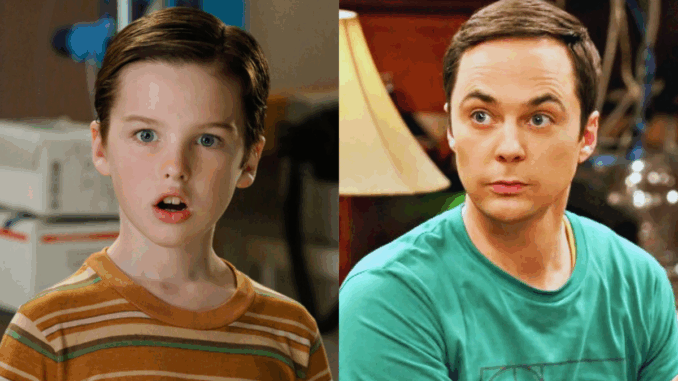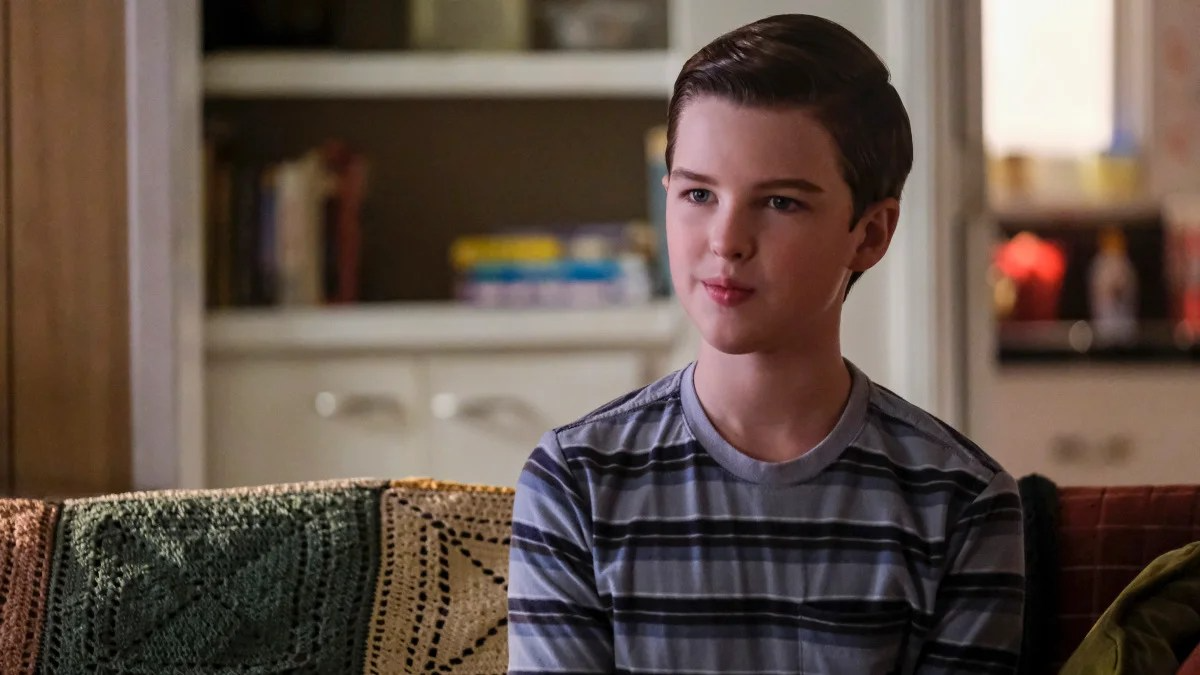
How Young Sheldon Successfully Explained a Memorable Scene from The Big Bang Theory
If you’re a fan of The Big Bang Theory and its prequel Young Sheldon, you know these two shows share more than just a main character. They share a universe—one filled with quirky brilliance, complex emotions, and a surprising amount of heart. And every once in a while, Young Sheldon drops a storyline that not only tugs at your emotions but also retroactively gives more weight to something we saw years earlier.
One of the most touching examples? Young Sheldon finally explains a powerful moment from The Big Bang Theory—and it hits even harder once you understand the full backstory.
The Big Bang Theory Scene That Left Fans Emotional
Sheldon’s Tribute to His Father
In The Big Bang Theory Season 7, Episode 9 (“The Thanksgiving Decoupling”), there’s a small but poignant moment where Sheldon tells Bernadette’s father that his dad, George Cooper Sr., once caught him practicing his Nobel Prize acceptance speech and said he believed Sheldon would win it someday.
It’s one of those rare vulnerable glimpses into Sheldon’s childhood, where we see that—despite his often cynical or emotionless exterior—he deeply values that memory. At the time, it felt touching, maybe even a little out of character for what we thought we knew about his dad.
But then Young Sheldon happened.
How Young Sheldon Revisited That Scene—Years Later
Season 4’s Emotional Callback
Fast forward to Young Sheldon Season 4, Episode 18, titled “The Wild and Woolly World of Nonlinear Dynamics.” In a quiet, beautifully crafted scene, young Sheldon is indeed caught by his father rehearsing his Nobel acceptance speech in his bedroom mirror.
And what does George do?
He doesn’t mock him. He doesn’t scoff. He tells him something simple, heartfelt, and absolutely perfect: “You’re gonna win it one day.”
Boom. There it is. A full-circle moment that hits like an emotional gut-punch—especially if you remember the Big Bang Theory scene from nearly a decade earlier.
Why This Scene Matters So Much
Changing Our Perception of George Cooper Sr.
Let’s be real—The Big Bang Theory didn’t paint Sheldon’s dad in the best light. Sheldon described him as a drunk, a cheater, someone who didn’t really understand him.
But Young Sheldon challenges that narrative. It shows a more complex, flawed, but loving father who’s doing his best. And in this Nobel speech scene, we finally see that George did support Sheldon in his own quiet way.
A Layered Approach to Storytelling
This is masterclass-level character development. What was once a one-liner from adult Sheldon becomes a meaningful turning point in Young Sheldon. It redefines what we thought we knew—and adds emotional depth without being overly dramatic.
The Power of Retcon Done Right
What Is Retcon—and Why Is This Different?
Retcon (short for retroactive continuity) usually gets a bad rap. It’s when writers change past details to fit new narratives. Often, it feels forced.
But in this case? It’s not a change—it’s a confirmation. It enriches canon instead of rewriting it.
Young Sheldon doesn’t contradict The Big Bang Theory. It enhances it.
How Iain Armitage and Lance Barber Made It Work
Performances That Sell the Moment
The strength of this scene lies in the acting. Iain Armitage (young Sheldon) delivers just the right mix of awkward pride and childish vulnerability. Lance Barber (George Sr.) brings a warmth that surprises the viewer, especially those familiar with Sheldon’s harsher recollections.
It’s not just good writing. It’s good acting, too.
Emotional Payoff for Long-Time Fans
Building Toward the Inevitable
We all know George Sr. dies before Sheldon heads off to Caltech. That’s been part of Big Bang canon from the beginning. So moments like this—where we see George trying, caring, encouraging—hit even harder, because we know they’re finite.
This Nobel moment isn’t just character development. It’s emotional setup for a much bigger payoff.

Nostalgia with Purpose
Not Just Fan Service
Sometimes, prequels get stuck trying to drop Easter eggs just to please fans. But this scene doesn’t feel like that. It’s a natural moment that fits perfectly within the emotional timeline of both shows.
It’s earned, it’s heartfelt, and it’s powerful.
A Lesson in Storytelling Across Shows
Connecting Two Shows Seamlessly
This scene is a perfect example of how two series can share DNA without stepping on each other’s toes. Young Sheldonrespects The Big Bang Theory, while adding new dimensions to its characters and their relationships.
It’s not easy to do—but when it works, it’s magical.
The Audience Reaction Was Immediate
Social Media Praised the Callback
When the Young Sheldon episode aired, fans were quick to make the connection. On Twitter, Reddit, and fan forums, viewers shared clips of the scene side-by-side with the Big Bang Theory version—and the reactions were emotional.
“I didn’t expect this show to make me cry, but it did.”
“Now I see George in a totally different light.”
“That’s why Sheldon remembered that moment. That’s why it mattered.”
The Legacy of a Single Line
From Joke to Heartbeat
In a show filled with scientific jargon, comic book jokes, and social awkwardness, one line—“You’re going to win it one day”—became a heartbeat. A thread that ties together childhood dreams, father-son dynamics, and adult gratitude.
That’s what great writing does. It turns simple lines into legacy.
The Big Picture: Why It All Works
Character Consistency Over Time
By slowly showing us that George was more than Sheldon remembered, Young Sheldon deepens not just the character of Sheldon, but the world around him.
And when Sheldon finally does win the Nobel Prize in The Big Bang Theory finale, the moment feels earned—not just academically, but emotionally.
Conclusion: A Scene Revisited, A Story Rewritten
Young Sheldon took a touching memory from The Big Bang Theory and gave it a face, a voice, and a context. In doing so, it added emotional resonance not just to George Cooper Sr., but to Sheldon himself.
It’s storytelling at its best—layered, intentional, and deeply human.
So next time you watch The Big Bang Theory and hear Sheldon talk about his dad, you won’t just hear the words.
You’ll feel them.
🌟 FAQs
Q1: What episode of Young Sheldon shows Sheldon rehearsing his Nobel Prize speech?
A: Season 4, Episode 18: “The Wild and Woolly World of Nonlinear Dynamics.”
Q2: Is the scene in Young Sheldon identical to what Sheldon described in The Big Bang Theory?
A: Yes, it beautifully matches Sheldon’s recollection, adding visual and emotional context to a previously brief line.
Q3: Why was this scene important to fans of both shows?
A: It connects a small but emotional moment from The Big Bang Theory to Sheldon’s past, deepening our understanding of his relationship with his father.